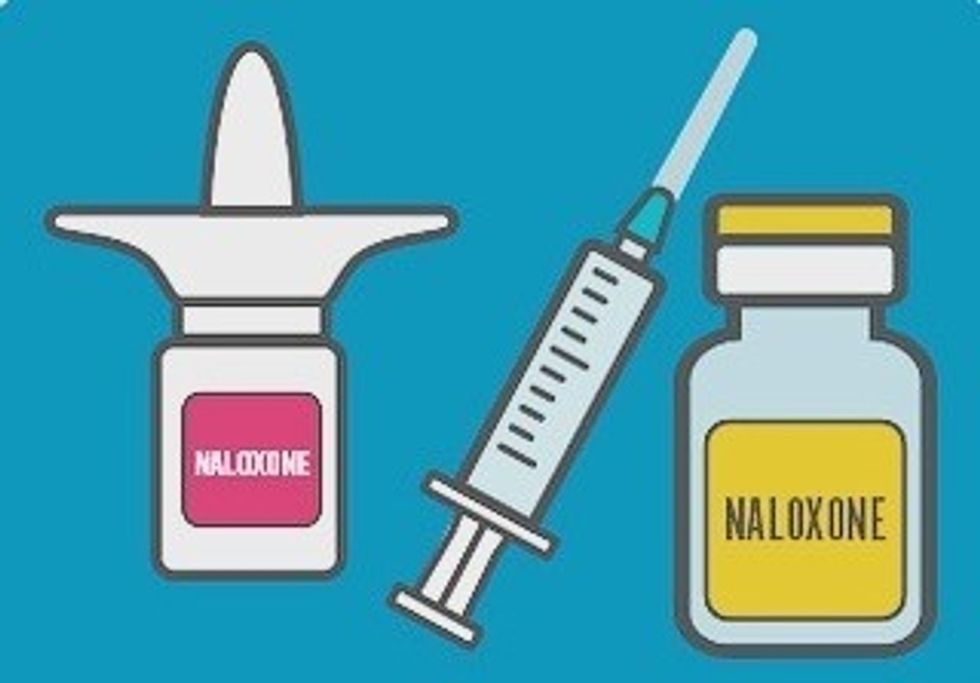More than 63,600 people died of a drug overdose in 2016 and roughly two-thirds of these deaths were caused by opioids, killing more people than car accidents, guns, or breast cancer. The opioid epidemic is in full swing and no one is immune to the damage being caused by it — not celebrities, not young people, not anyone. At a time when our life expectancy is falling for the first time since the 60s and a fifth of all deaths among Americans aged 24 to 35 are due to opioids, it has never been more necessary to get life-saving means into the hands of individuals everywhere.
Luckily, these kinds of life-saving means do exist. Naloxone, more commonly known as Narcan, is a medication designed to rapidly reverse an opioid overdose by binding to opioid receptors and reversing and blocking the effects of other opioids, often available in either a nasal spray or injection. Trainings are usually free and pop up in most communities every month or so. From 1996 to 2014, at least 26,500 opioid overdoses in the U.S. were reversed by laypersons using Narcan and Narcan prescriptions filled at U.S. pharmacies increased 1170% between 2013 and 2015.
The potential is incredible. Unfortunately, it's not necessarily being reached. Most laypersons are not Narcan trained, either because they don't know what it is or they don't think they'll ever be around someone who overdoses. But just like we get CPR trained just in case something ever happens, we should all be getting Narcan trained, as well. While most of us probably don't think we'll ever end up in that situation, it happens. And it can mean the difference between life and death.
As Dr. Stephen Jones, a researcher with the CDC says, "In order for [Narcan] to be most effective, we need to get it into the hands of people who are most likely to be on the scene of an overdose." That's why initiatives that bring Narcan to people who use themselves are so important. No one wants their friend to die. But the truth is, no community is untouched by this epidemic. The more people we get Narcan trained, the fewer people we will see die from something absolutely preventable. And the more people will have a chance to recover and get their lives back.
A lot of jobs require CPR training, and a lot of companies arrange for a day of training so their employees can learn how to intervene in an emergency situation. Narcan training should be just required. A life is a life, whether they're an addict or not.

















